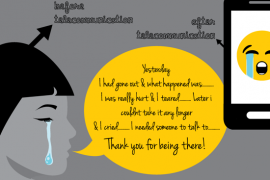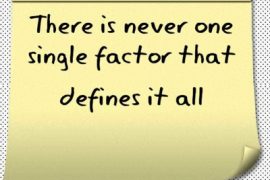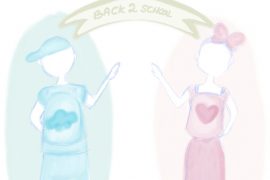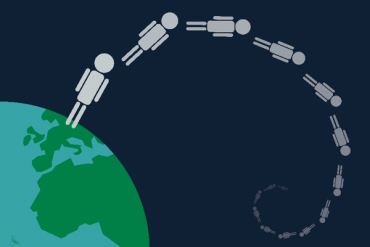The author talks about his lifelong belief of impartiality and tolerance, and how various experiences in his life led him to where he is now.
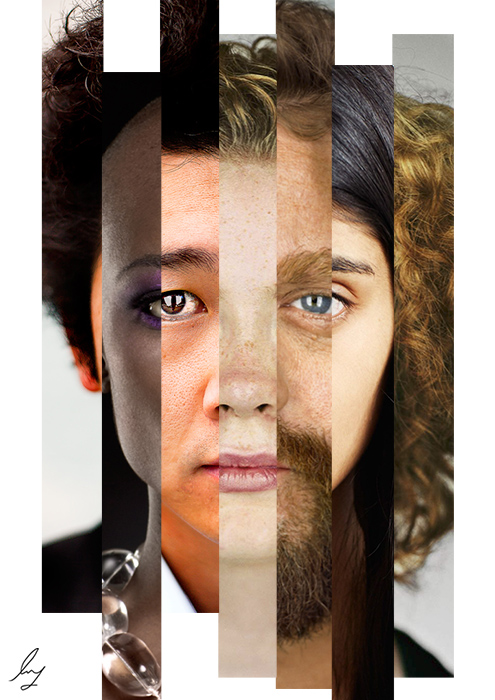
On November 14th 2015 I participated in one of Expo2020’s first youth events, #YouthConnect, that took place in Dubai. This full day event was busy with various speakers, workshops, seminars, comedy shows, and entertainment. Among the brilliant speakers there was Mohammed Saeed Harib the founder of Fareej, and Sara Amiri, the Deputy Project Manager to the Emirates Mars Mission. But there was one speaker whose words and thoughts resonated in me for a few days.
That speaker was Adrian Hayes, a British record-breaking polar explorer and adventurer, keynote speaker, business coach, author and campaigner to sustainability. During his eventful workshop he asked us to share our goals and any challenges we may have faced in our lives, and then to point out the values from the story that defined us.
I started thinking of the numerous challenges and scenarios throughout my life while trying to pick out the most common denominator between all those challenges. While I did not know what my goals were then, I knew what some of my values were. I believe I was able to find just a tiny speck that constitutes the basis of what my values are: impartiality.
My family moved to Australia for seven years when I was in the first grade. During those years I managed to absorb the intercultural, tolerant, diverse values that the Australian society holds. I would attend the school chapel with my classmates every Wednesday, play with an ethnically diverse group of friends, and during our religious education class the teacher would always ask me to share the stories and principles of Islam to my Christian friends as a form of cross-religious understanding. These experiences built the foundation of my impartiality. I grew up to believe that we are all equal human beings regardless of one’s ethnicity or faith, because just as the young school boy me played with kids from different backgrounds, I believe even the adult me can still have the same tolerant value of impartiality.
When I came back to the United Arab Emirates I was somewhat shocked by the educational system and the school environment I was placed in. My recent and young values of impartiality were put to the test, and I was pressured by a social system that did not always share the same value as me. In school I was picked on quite frequently, simply because I was different. Those differences included having lived abroad and knowing how to speak English well. I always refused to discuss or associate myself with backbiting, gossiping, disrespecting adults, and most of all, I never swore or hit back anyone who would irritate me. Throughout the years my impartiality grew and strengthened by various experiences faced in school. I started to believe that just because someone is of the same ethnicity as you that does not give you the right to be biased in your judgement. In addition, I learned the importance of patience and holding on to your values and uniqueness, regardless of what those around you think.
After graduating from school I continued my Bachelor’s degree in Dubai Men’s College. At that point in my life I knew that the impartiality that I have grown deep within me is now to be shared with society, which is why I started to become very active during my studies. From interning at du where I ran and oversaw one of du’s largest Ramadan Iftar initiatives, to being a delegate and master of ceremony to various international events such as Education Without Borders, or the Festival of Thinkers. My impartiality grew even stronger as it started to adapt from intellectual dialogues where it was rejected, questioned, or debated by others. People sometimes fear and find it disrespectful when someone questions or doubts their values, faith, or culture. However, at this point I knew otherwise. I knew that in order for my values to develop and become stronger I needed to be exposed to a more diverse, intellectual atmosphere that my college did not provide. This led me to pursue my master’s degree in a diverse and tolerant city, New York City.
During my two years in New York University studying Global Affairs I started to experiment the impartiality I so strongly believed in. I wrote about it in my essays, talked about it in my class, discussed it with my friends, and most of all tried to live up to it myself. I lived in one of the most ethnically diverse cities in the world so that I would be able to expose all that I believe in and ask others to oppose it, that it may propagate and grow in strength. I found myself encircled by a very diverse group of friends in regards to ethnicity, gender, religion, ideology, and even personality. I opened myself to the world whereby I attended a Jewish Shabbat dinner and a Hispanic community centre. I knew that the impartiality I grew ever since I was in school was ready to stand up and face the world we see today.
Values are a combination of experiences, knowledge, and culture. The experiences I faced throughout my life as a somewhat international being added towards my understanding of who I am. I am neither Australian nor Emirati, neither black nor white, neither Sunni nor Shiite. My experiences are what made me who I am, and I am a global citizen whose belief in impartiality, tolerance, and understanding were nurtured not by a single ethnicity, religion, or state but by the world as a whole.
